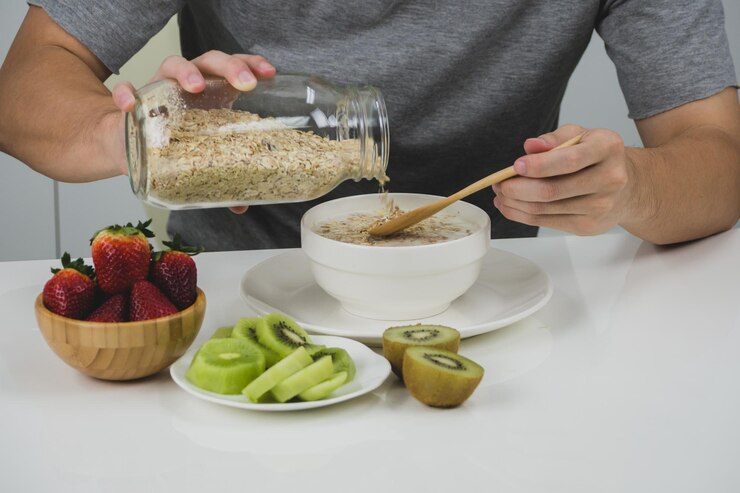Last updated on July 12th, 2025 at 12:39 pm

Constipation is a common digestive issue that refers to infrequent bowel movements or difficulty in passing stool. It occurs when the stool becomes hard and dry, making it challenging to evacuate. This condition can lead to discomfort and even pain, affecting one’s overall well-being. While occasional constipation is normal, chronic constipation can indicate underlying health concerns.
Causes of Constipation
The Constipation causes are mentioned as follows:
- Diet: A lack of dietary fibre and inadequate fluid intake can slow down digestion and lead to constipation.
- Lack of Physical Activity: A sedentary lifestyle can affect bowel movements and contribute to constipation.
- Medications: Certain medications, such as painkillers, antacids, and some antidepressants, can lead to constipation as a side effect.
- Medical Conditions: Conditions like irritable bowel syndrome (IBS), hypothyroidism, and neurological disorders can impact bowel movements.
- Ignoring the Urge: Ignoring the body’s natural signals to defecate can lead to constipation over time.
Constipation Medicine
Constipation medicine encompasses a range of treatments designed to alleviate the discomfort and inconvenience caused by this common digestive issue. These medications work by promoting bowel movements, softening stool, or aiding the digestive process.
It’s important to note that while constipation medicine can provide relief, it should be used judiciously and under the guidance of a healthcare professional to avoid potential complications.
> Consult a doctor and Order Medicine Online
Types of Constipation Medicine
The types of medicines for Constipation are as follows:
1.Laxatives: Laxatives are perhaps the most well-known type of constipation medicine. They work by either increasing stool bulk, softening stool, or stimulating the intestines to move stool along. There are several subtypes of laxatives:
- Bulk-forming Laxatives: These contain soluble fibre that absorbs water in the intestines, creating softer and bulkier stool. Examples include psyllium and methylcellulose.
- Stimulant Laxatives: These stimulate the intestines to contract more frequently, promoting bowel movements. Bisacodyl and senna are common stimulant laxatives.
- Osmotic Laxatives: These increase the amount of water in the intestines, softening the stool and facilitating its passage. Examples include magnesium-based laxatives and polyethene glycol.
- Lubricant Laxatives: These coat the stool with a waterproof film, making it easier to pass. A good example of a lubricant laxative is mineral oil.
2.Stool Softeners: Stool softeners, also known as emollient laxatives, help moisten and soften dry, hard stool. Docusate sodium is used commonly for stool softening.
3.Enemas and Suppositories: These are inserted into the rectum and work locally to stimulate bowel movements. Enemas involve injecting liquid into the rectum, while suppositories are solid medications that dissolve once inserted.
Constipation Medication: Usage and Considerations
- Dosage and Timing: The appropriate dosage and timing of constipation medicine depend on the type of medication and the severity of the constipation. It’s crucial to follow the instructions provided on the packaging or as directed by a healthcare professional.
- Short-Term Use: Constipation medicine is generally intended for short-term use to provide relief from acute constipation. Prolonged or excessive use of certain laxatives can lead to dependence or other complications.
- Underlying Conditions: If constipation is chronic or accompanied by other symptoms, such as abdominal pain or blood in the stool, it’s important to consult a healthcare provider before using constipation medicine. Underlying medical conditions might need to be addressed.
- Hydration: When using certain types of laxatives, such as osmotic laxatives, it’s essential to maintain adequate hydration to prevent dehydration.
- Side Effects: Constipation medicine can have side effects, such as cramping, bloating, and diarrhoea. Some individuals may experience adverse reactions, so it’s important to be aware of potential side effects.
- Interactions: Constipation medicine can interact with other medications. It’s advisable to inform a healthcare provider about all medications being taken to prevent potential interactions.
Constipation medicine plays a crucial role in providing relief from the discomfort of constipation. It’s important to select the appropriate type of medication based on individual needs, follow recommended dosages, and consult a healthcare professional if constipation is chronic or severe. Alongside medication, dietary changes, increased physical activity, and other lifestyle modifications can contribute to better digestive health and long-term prevention of constipation.
Home Remedies for Constipation
Constipation can often be managed with simple and natural home remedies. Some effective home remedies for constipation are as follows:
1.Increase Fiber Intake:
Dietary fibre plays a vital role in maintaining healthy and regular bowel movements. Consuming fibre-rich foods adds bulk to stool and facilitates its passage through the digestive tract. Opt for whole grains, fruits, vegetables, legumes, and seeds to boost your fibre intake.
2.Stay Hydrated:
Adequate hydration is crucial for softening stool and promoting proper digestion. Drink plenty of water throughout the day, it can help prevent constipation. Herbal teas, clear soups, and fresh fruit juices also contribute to hydration.
3.Exercise Regularly:
Physical activity stimulates the muscles in the intestines, helping to move stool along and prevent constipation. Engaging in regular exercise, even a brisk walk or light yoga, can improve bowel regularity.
4.Prune Juice:
Prune juice is a natural laxative that contains both fibre and sorbitol, a sugar alcohol with a mild laxative effect. Drinking a small glass of prune juice can help soften stool and promote bowel movements.
5.Flaxseeds:
Flaxseeds are rich in fibre and healthy fats. Adding ground flaxseeds to your meals, such as in yoghurt, smoothies, or cereal, can provide relief from constipation.
6.Olive Oil:
Consuming a teaspoon of extra virgin olive oil on an empty stomach in the morning can help lubricate the digestive tract, making it easier for stool to pass.
7.Herbal Teas:
Certain herbal teas, such as peppermint, ginger, and chamomile, have digestive benefits and can ease constipation. Peppermint tea, in particular, can help relax intestinal muscles.
8.Epsom Salt Bath:
Taking a warm bath with Epsom salt can relax the muscles and improve blood circulation, potentially aiding in relieving constipation.
9.Yogurt and Probiotics:
Yoghurt contains probiotics, which are beneficial bacteria as it supports gut health. Regular consumption of yoghurt or other probiotic-rich foods can improve digestion and promote regular bowel movements.
10.Magnesium-Rich Foods:
Magnesium helps in relaxing the muscles in the intestines and promoting bowel movements. Foods high in magnesium, such as leafy greens, nuts, and seeds, can be included in your diet.
11.Aloe Vera Juice:
Aloe vera juice has natural laxative properties and can help soothe the digestive tract. However, it’s important to use aloe vera products meant for internal consumption and to consult a healthcare professional before use.
12.Warm Water with Lemon:
Drinking warm water with a squeeze of lemon in the morning can stimulate the digestive system and encourage bowel movements.
Remember: While home remedies can provide relief, they may work differently for each individual. If constipation persists, worsens, or is accompanied by severe symptoms, it’s important to consult a healthcare professional for proper diagnosis and guidance.
Read: What are Generic Medicines?
When to Seek Medical Attention for Constipation?
While home remedies and OTC medications can often relieve constipation, it’s important to consult a healthcare professional if:
- Constipation becomes chronic or severe.
- There is persistent abdominal pain, bloating, or vomiting.
- Blood is present in the stool.
- Bowel movements are causing unintended weight loss.
Note: Severe constipation can sometimes cause nausea. In such cases, doctors may suggest anti-nausea medicines like Avishal Tablet for relief while managing constipation.
Conclusion:
Constipation is a common digestive issue that is characterized by infrequent bowel movements and difficulty in passing stool. It can be managed through a combination of dietary changes, home remedies, and, if necessary, the use of constipation medicine.
However, it’s essential to seek medical advice for persistent or severe constipation to rule out underlying health conditions and ensure proper treatment.
FAQs on Constipation
Q1. What is constipation, and what causes it?
Constipation refers to infrequent bowel movements or difficulty passing stool. It occurs when stool becomes hard and dry, making evacuation challenging. Several factors can contribute to constipation, including a lack of dietary fibre, inadequate fluid intake, a sedentary lifestyle, certain medications, medical conditions (like irritable bowel syndrome or hypothyroidism), and ignoring the body’s urge to defecate.
Q2. How can constipation be relieved at home?
There are several home remedies to alleviate constipation:
- Increase Fiber Intake
- Stay Hydrated
- Exercise Regularly
- Prune Juice
- Herbal Teas
- Probiotics
- Healthy Fats
- Establish Routine
